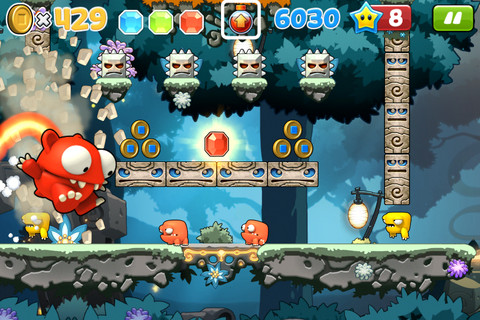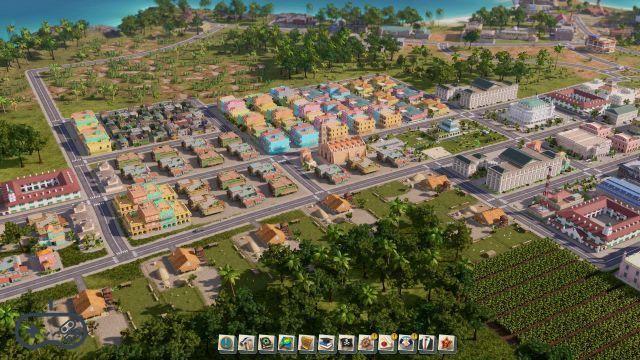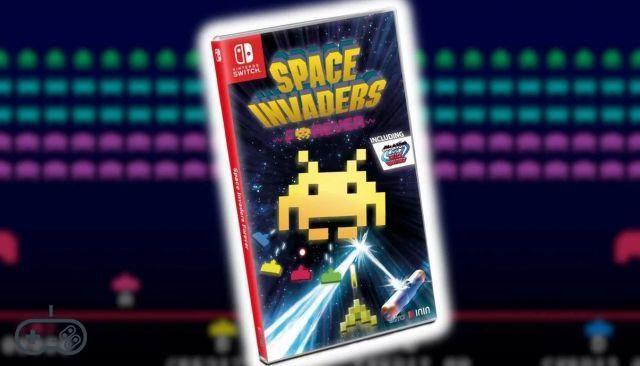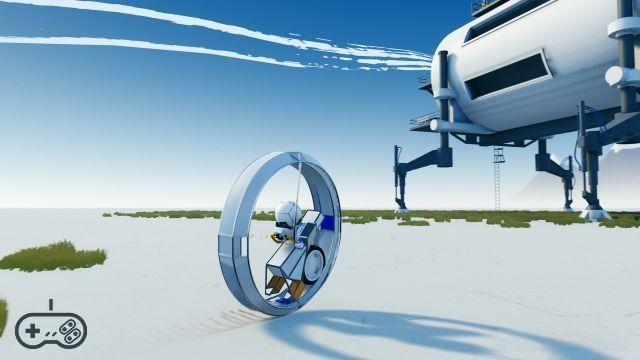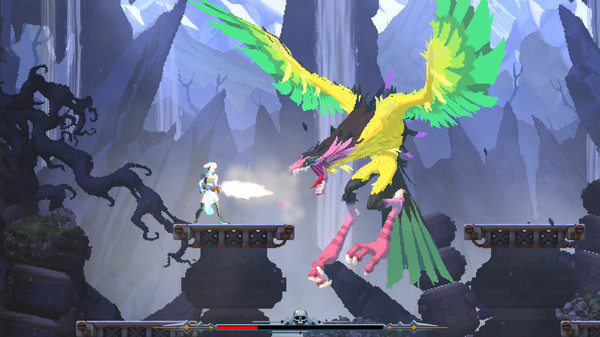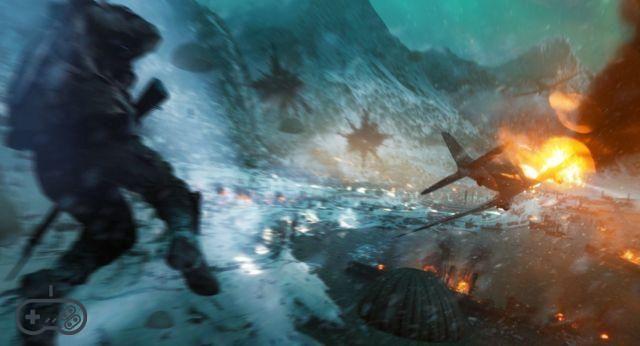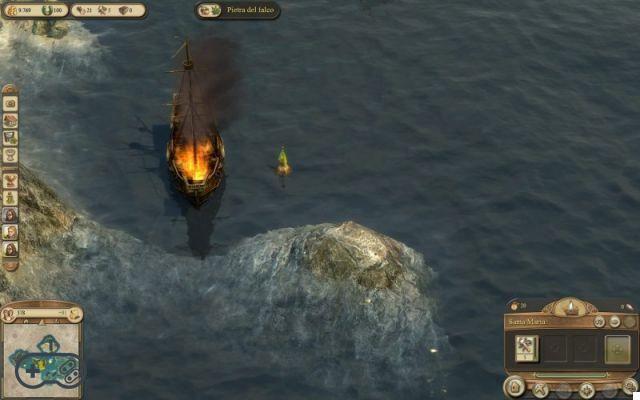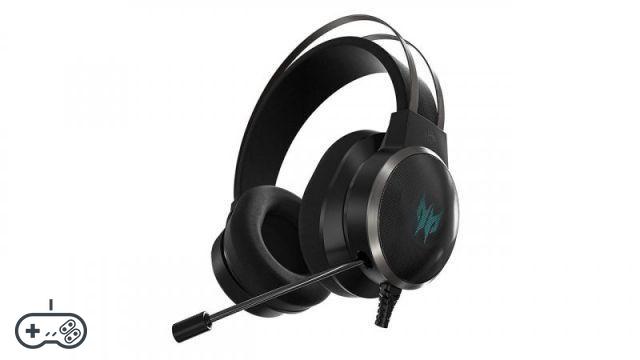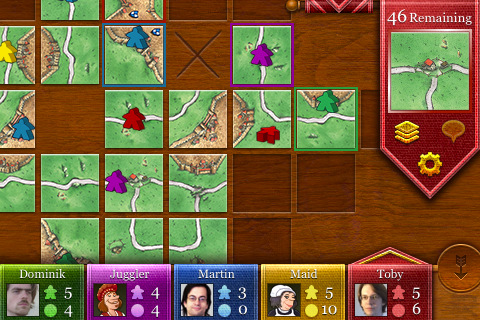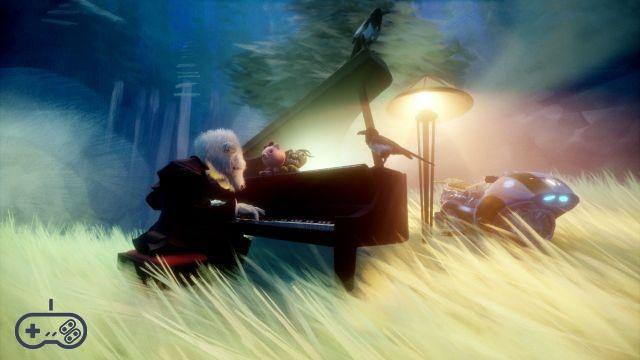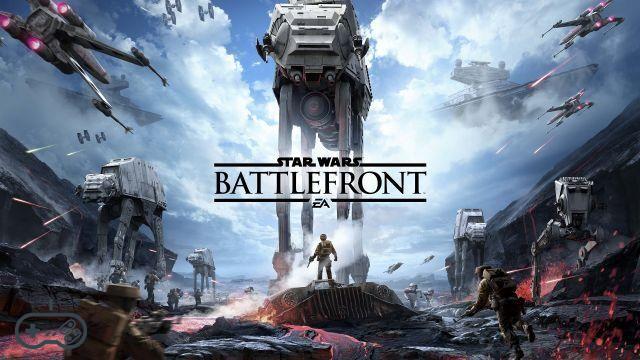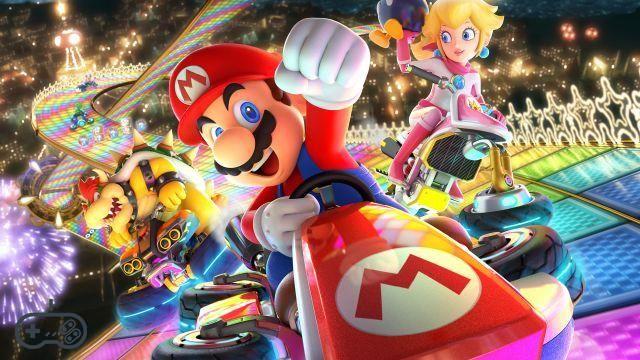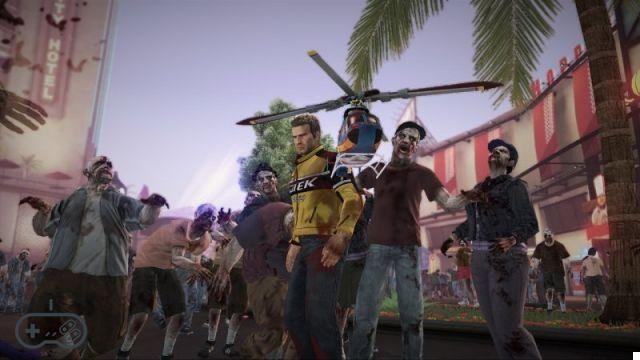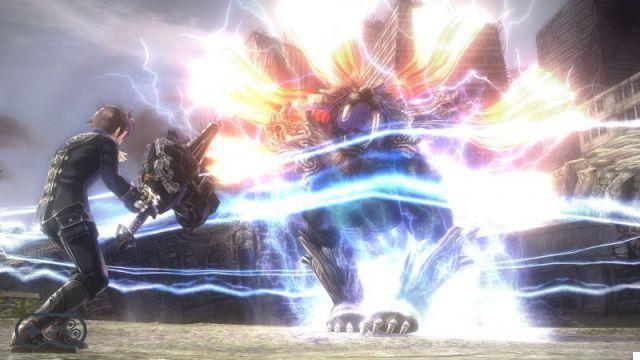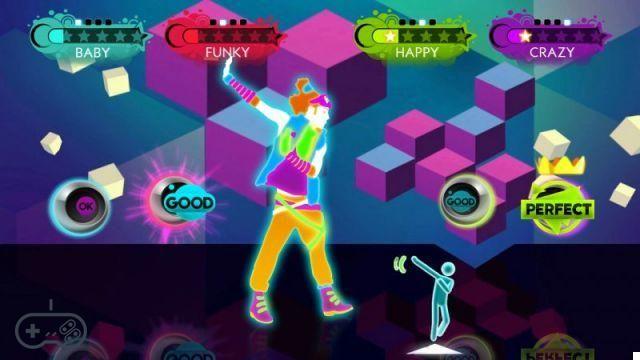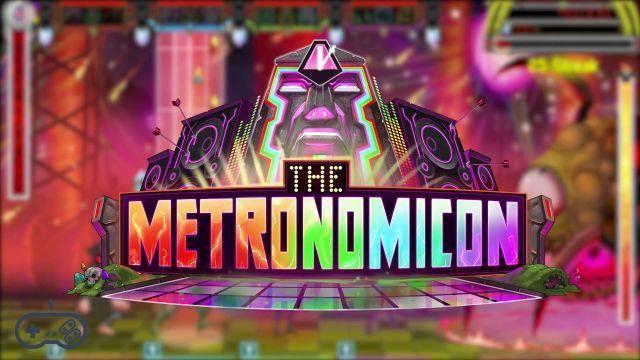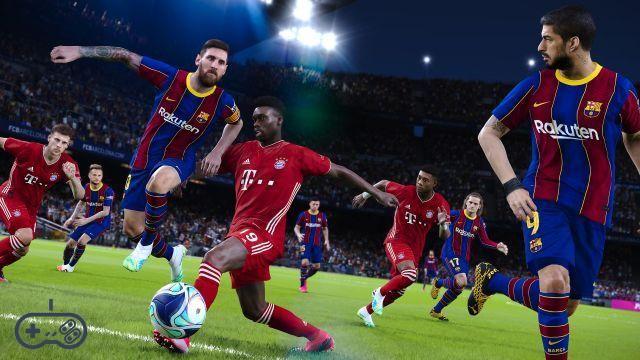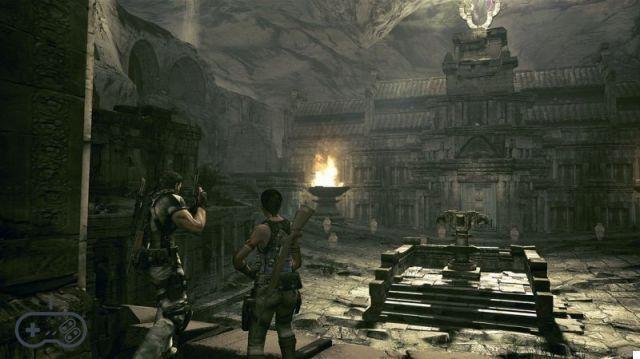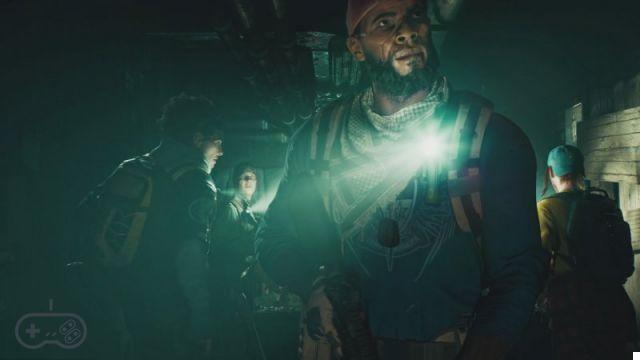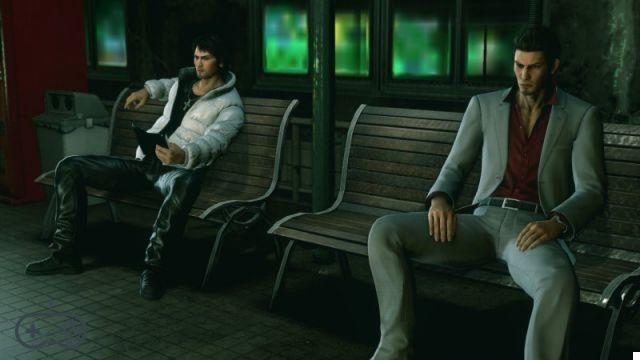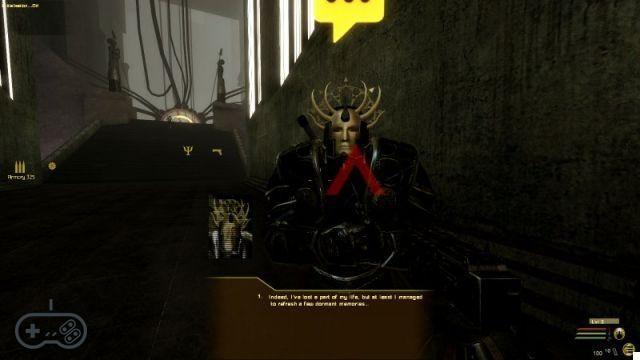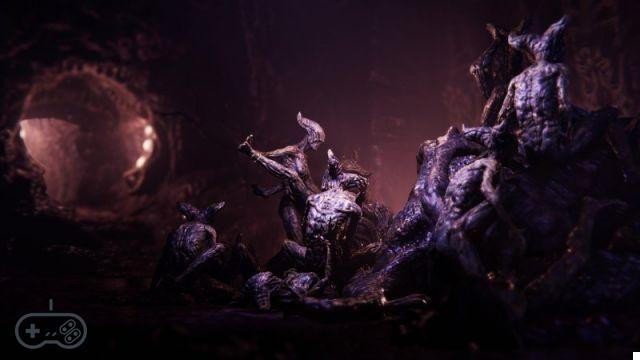Nippon Ichi is a historical publisher and developer who turns thirty in 2021, to whom we owe several interesting video games: the Disgaea series, Yomawari: Night Alone, Yomawari: Midnight Shadows, A Rose in the Twilight and many others. Mainly focused on RPGs, including tactical ones, with Poison Control it is a bit out of the familiar patterns by presenting an action RPG with third-person shooter dynamics: a sort of Danganronpa Another Episode: Ultra Despair Girls, lacking that charm that the series signed by Spike Chunsoft has well or badly maintained even with its spin-off.
Poison Control is a game that pinches here and there, particularly from Persona 5, but fails to stand out in anything, to the point of becoming boring, repetitive and predictable within the first half. The short stories he tells do not stand up to comparison with Atlus' masterpiece but do not even come close to him, while the obvious fanservice - for those who find a reason to buy in the abundant female graces - alone is not enough to offer the right motivation to get to the end without being overwhelmed by boredom. Let's see it in detail in ours Poison Control review.
A story without a bite
Poison Control puts us in the shoes of a protagonist (male or female) suffering from amnesia, who suddenly finds himself in hell and no longer master of his own body: or rather, without having had much say in this regard, he found himself having to share it with an otherworldly creature called Poisonette, which after depriving us of the mortal remains will become our Soul Mate and will accompany us along our journey. Which trip, you ask? Simple, it seems we - or at least people like us, since we are not the only ones with special abilities - have the power to purify the spirits, all strictly female, prisoners of their own desperation, which manifests itself in the form of poison. To do this we will have to access what we could define their personal hell (imagine them as the Palaces of Persona 5, because they are conceptually the same thing), eliminate the source of their suffering and thus free them from the limbo in which they found themselves prisoners.
Despite the incredible resemblance to Atlus' work, which also extends to aesthetics and music, the experience could still have been captivating. Unfortunately it fails due to a lackluster presentation of the stories themselves, who only in rare cases stir a vague compassion for the sad fate these girls have fallen into, and soon you'll end up skipping all the dialogues to get to the end of the level - the same twists are phoned, failing to surprise as they should. The amnesia of the protagonist and the very nature of Poisonette could be the only reasons sufficient to go to the end of the game, if it were not that where the narration opens an interesting glimmer the gameplay arrives at a stretch to bury everything once again.
A boring and repetitive gameplay
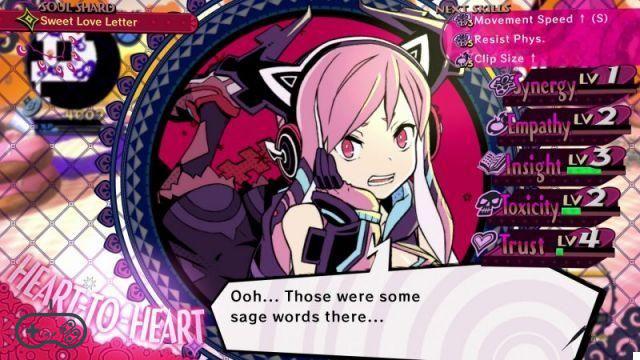
As anticipated, the gameplay of Poison Control is divided between the third-person shooter and the RPG when it comes to the enhancement of the character. The unsolicited "fusion" with Poisonette has turned our arm into a gunshot capable of injuring the evil entities known as Klesha who inhabit hell. We have at our disposal an arsenal discreet, largely derived from the souls of the liberated girls (excluding the basic weapon linked to Poisonette): it is divided between Toxicants and Deliriants, respectively main and secondary weapons, Antidotes that affect the defensive characteristics, to conclude with Catalysts that instead they serve as general support by increasing our purification abilities, allowing us to more easily collect items and coins, and so on. While passing from one weapon to another, the shape of the arm will remain the same, the type of bullets, the rate of fire and the power will change. It is also not possible to change the loadout during a mission, you will have to think about it first by going through the appropriate menu. During our trips to individual hells it will happen specific interactions with Poisonette called Heart to Heart, which once again recall the Confidants of Persona 5 and allow us to improve our traits based on the response offered.
If we exclude exploration, there are two main actions to take: shoot and purify. Over the course of the game we will encounter different types of Klesha, none of them memorable in terms of design, which we will have to break down by making our way to the heart of the problem. There is no particular strategy to deal with them and it soon all comes down to choosing your favorite weapons, aiming and firing, alternating with a special area attack that helps you get rid of any large groups. Each girl to be saved, or Belle as they are called in the game, requires different approaches related to her personal drama but even in this case we do not find particular variety: we will have to purify a certain amount of poison, kill a certain amount of enemies and very little else. In some cases, before finding the solution it is necessary to understand the current situation by exploring the realm in question and only then will we be revealed how to proceed to put an end to the pains of the spirit in question. There is no shortage of boss fights but, as good or bad as the rest of the game, they do not shine at all in the realization. Poison Control is a game that gets boring and repetitive before you even get to the middle of the adventure, where neither plot nor plot shines; the very little that could be saved is ruined entirely by the lackluster gameplay.
Technical aspect
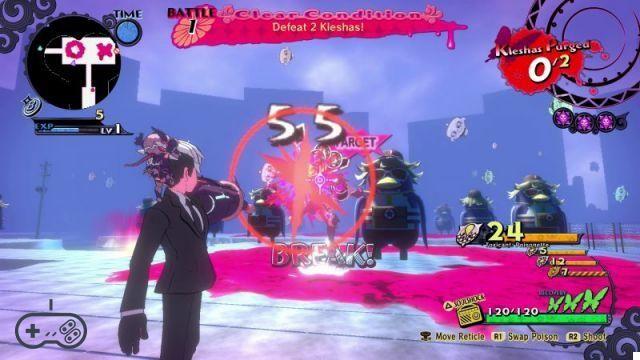
Visually, Poison Control proves itself mediocre as much as its playful counterpart: there is nothing that really catches the eye and it certainly does not share at all the nicer aesthetics that Nippon Ichi is known for. The level design is incredibly basic, once again repetitive to the point that many levels seem the collage of many others, the artificial intelligence has not arrived and if the enemies have the better it is by virtue of the number or the fact that in some areas they appear indefinitely, becoming a constant nuisance that frustrates already tedious gameplay - this is mainly because if you are defeated you will lose all progress and restart from the main hub. The soundtrack, which chases Persona 5 again but does not reach its glories, becomes forgettable in a short time. Then there is no shortage technical problems here and there like blurs, light effects that come and go depending on how you rotate the camera, voices that are covered by background music, occasional drops in frame rate and so on. In short, even if you want to look for something good, we can't really find valid reasons why you should come to the conclusion of Poison Control, much less try to replay it.
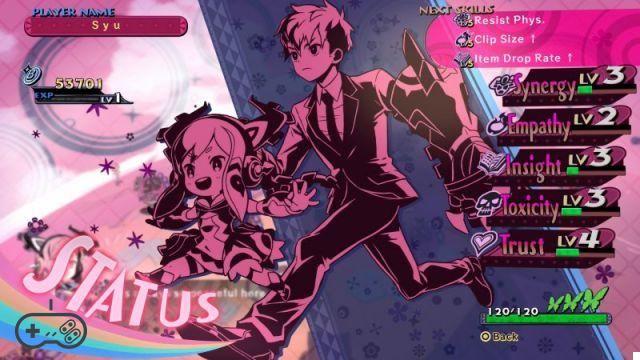
Comment
Tested version PlayStation 4 Digital Delivery PlayStation Store, Nintendo eShop Price 29,90 € Resources4Gaming.com5.0
Readers (2)6.6
Your votePoison Control is an insufficient game in every respect: it does not emerge in the narrative, in the gameplay or even in the aesthetics, resulting in a product that in its brevity - just over fifteen hours - is not worth your time anyway. Some basic ideas are interesting, it is a pity that the implementation is terrible and devoid of any flicker they might have. Nippon Ichi can do much better.
PRO
- There are some discrete ideas
- Inconsistent texture and weave
- Tedious, repetitive and poorly structured gameplay
- Visually it does nothing to be remembered




